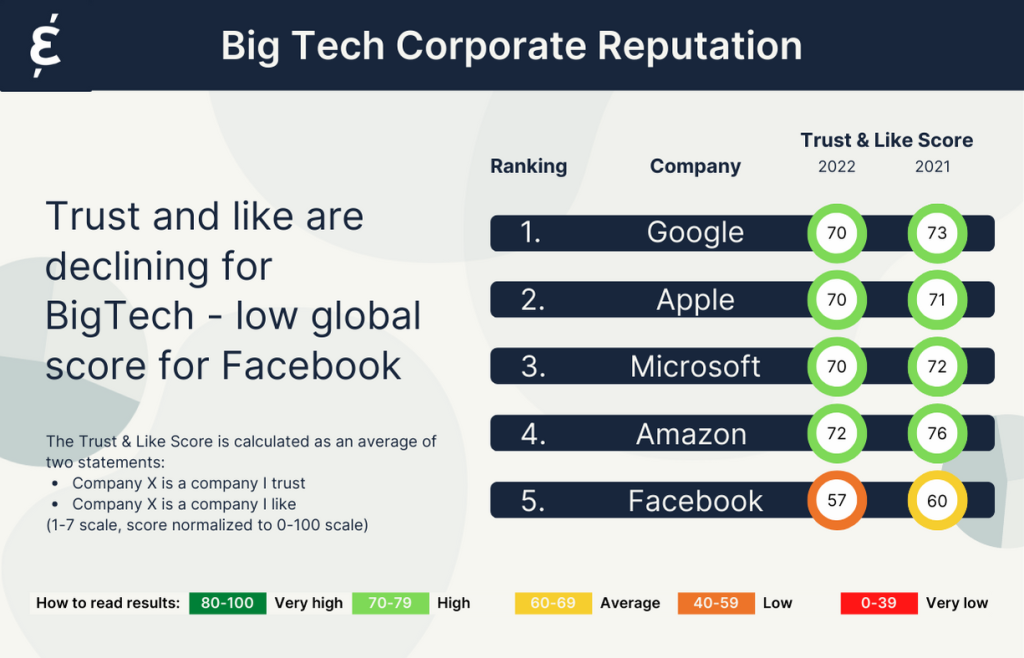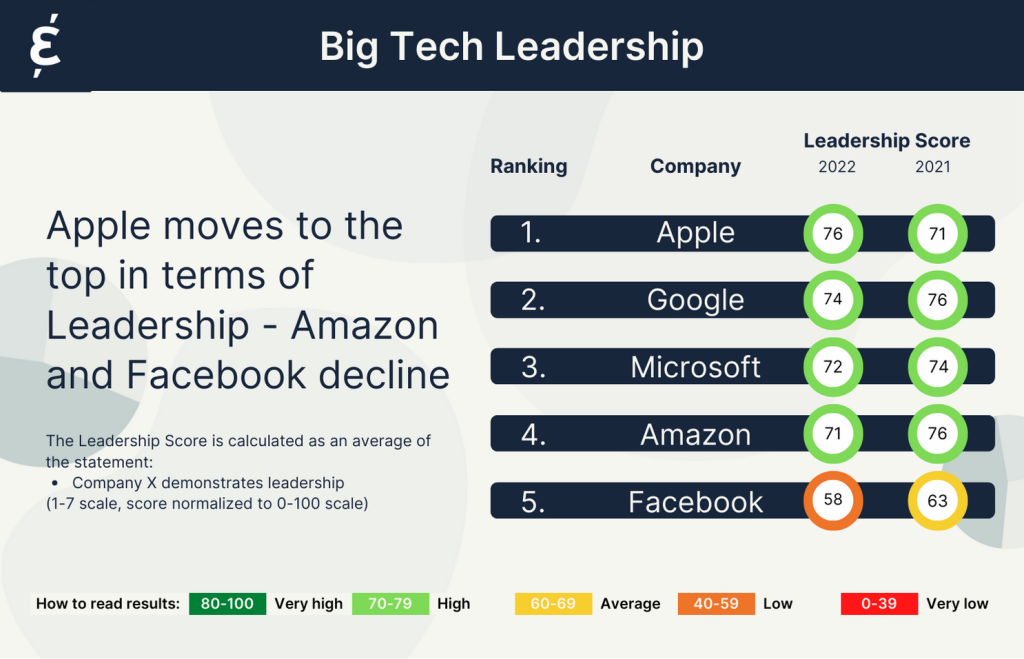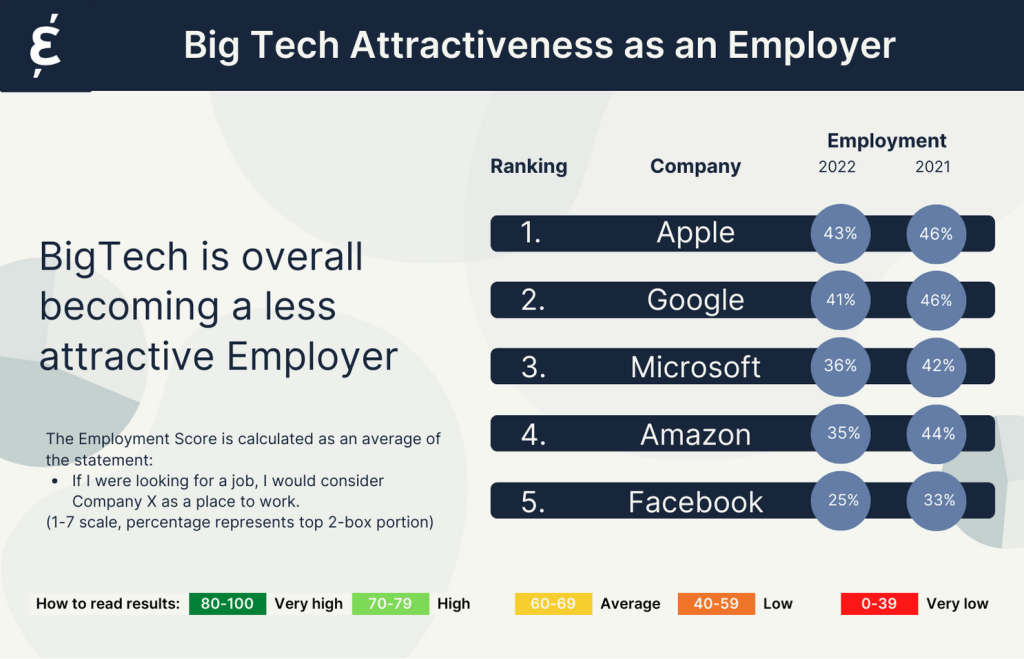
The reputation and perceptions of Big Tech have changed a lot in the past year. Have a look at how things have shifted for the industry.
For decades, Silicon Valley darlings like Google, Apple, and Facebook have set the gold standard for tech sector success – not only in a financial sense but also as trailblazers for a new and promising digital age.
As a result, top technology companies (Apple, Google, Microsoft, Amazon, and Facebook) earned themselves strong reputations, known for cutting-edge products with the ambitions of impacting people’s lives for the better but recently the tides have started to turn.
[Download the Big Tech Reputation Rankings]
Today nearly every major tech company is facing a series of challenges including questionable ethics resulting in harsher legislation on data privacy and data security, powerful CEOs with personal agendas, and not least a decline in profits resulting in the laying off of thousands of employees.
Perceptions generate emotions and emotions trigger certain behaviors, and by looking at how Big Tech’s reputation has changed over time, it’s clear that the sector has a rocky road ahead.
By comparing recent data with previous years, it’s apparent that the overall Trust & Like Score for Big Tech has dropped. The most significant drops were recorded by Facebook and Amazon.

Despite the decline, Amazon is still relatively well-perceived among its stakeholders, but Facebook’s reputation is rapidly declining. While Zuckerberg is betting it all on the future of Meta, Facebook is struggling with massive layoffs, data privacy scandals, and accusations of enabling social harm, with not many solutions to show for it.
Read also: Is Big Tech Losing Our Trust?
Leadership scores have dropped for all brands in the ranking, and again Facebook sits at the bottom of the list.
In Big Tech, the personal brands of the company’s CEO’s carry a lot of weight. In the case of Meta and Facebook, many believe that it is Zuckerberg’s lack of leadership or correct vision that is derailing both companies towards failure.

This year, Google recorded the most surprising drop. The brand came under fire for its diversity policies after it fired prominent AI ethicist Timnit Gebru two years ago following his claims that Google was developing a racial and politically biased AI. The company has been trying to improve its diversity and inclusion policies since then, but according to the public – not quick enough.
Amazon and Facebook have both experienced more than an 8% drop in attractiveness as employers, compared to 2021.
Facebook ranked 47th in the “Best Places to Work” rankings for 2022, a nose dive from 11th last year. Amazon, on the other hand, scores well when it comes to working in corporate offices, however, that’s just a small proportion of their workforce compared to the 125,000 factory employers, who continue to struggle with low wages and harsh working conditions.

Although Big Tech titans such as Zuckerberg and Bezos have historically been considered untouchable, the public and investors are now rethinking the value of the system, which is known to create permanent sovereigns who can get away with writing long apologies instead of being accountable to their different types of stakeholders.
The chaos in the industry is the result of its rapid escalation to power, which has created a disconnect between Big Tech’s leadership, average consumers, and rank-and-file workers.
Many people today are growing tired of the BigTech Monopoly, and maybe the future winners in tech are not going to be those who invent the next app or alternate universe.
Maybe it will be those who can prove to society that their product or service acts in their best interests, despite economic recessions, political turmoil, and global uncertainty.
Learn more: Stakeholder Intelligence for the Technology Industry
You may also be interested in
Follow Caliber
Get the results of our latest research directly in your inbox!